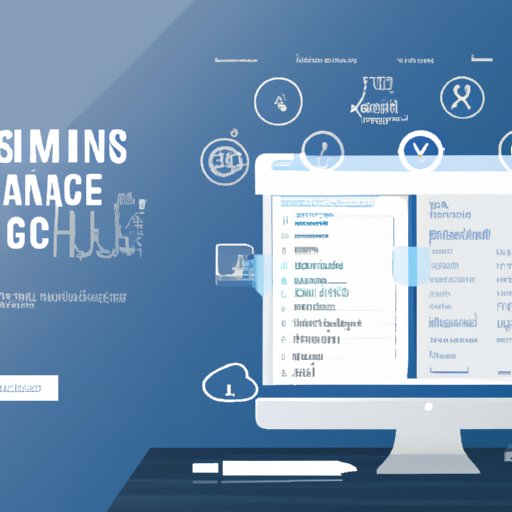Introduction
Starting your own accounting business can be a great way to become your own boss and gain financial freedom. It’s important to do research and understand what it takes to be successful before taking the leap into entrepreneurship. This article will provide an overview of the steps you need to take in order to get started with your accounting business.
Definition of an Accounting Business
An accounting business provides services related to financial record keeping and analysis. The services provided by an accounting business may include bookkeeping, tax preparation, payroll processing, financial statement preparation, consulting, and more. Depending on the size of the business, these services may be offered to individuals, small businesses, or large corporations.
Overview of the Steps to Start an Accounting Business
Starting an accounting business requires planning, dedication, and commitment. Here are some of the steps you should consider when starting your own accounting business:
Develop a Business Plan
The first step in starting an accounting business is to create a business plan. A business plan is a document that outlines your goals and objectives, start-up costs, pricing for services, estimated income, and marketing strategies. Creating a detailed business plan can help you determine if starting an accounting business is the right decision for you.
Choose a Legal Structure
The next step is to choose a legal structure for your business. The most common legal structures for an accounting business are sole proprietorship, partnership, and corporation. Each structure has different advantages and disadvantages, so it’s important to research which one is the best fit for your business.
Obtain Licensing and Certifications
In order to practice as an accountant, you must obtain a CPA license from your state’s board of accountancy. There may also be other certifications or licenses required depending on the services you plan to offer. It’s important to understand the licensing requirements for your state before starting your business.

Find the Right Software Solutions
To run an efficient accounting business, you need to have access to reliable and up-to-date software solutions. You should research and compare different accounting and tax preparation software programs to find the one that best suits your needs. You may also want to consider investing in a cloud-based accounting system to make it easier for you to work remotely.
Establish an Online Presence
In today’s digital world, it’s important to have an online presence in order to reach potential clients. You should create a website and establish social media accounts to promote your business. You can use your website and social media platforms to showcase your services and share helpful content related to accounting and taxes.

Network with Other Accounting Professionals
Networking is an important part of running a successful accounting business. Joining professional organizations and attending local networking events can help you connect with other accounting professionals and build relationships with potential clients. Networking can also help you stay up-to-date on industry trends and best practices.

Research Local Regulations and Laws
It’s important to familiarize yourself with the local laws and regulations related to accounting and taxes. Make sure you understand the state and local tax regulations and any other legal requirements that may apply to your business. This will ensure that you are in compliance with all applicable laws and regulations.
Conclusion
Starting an accounting business can be a great way to become your own boss and gain financial freedom. The steps outlined in this article can help you get started on the path to success. Developing a business plan, choosing a legal structure, obtaining the necessary licenses and certifications, finding the right software solutions, establishing an online presence, networking with other accounting professionals, and researching local regulations and laws are all important steps to consider when starting an accounting business.
(Note: Is this article not meeting your expectations? Do you have knowledge or insights to share? Unlock new opportunities and expand your reach by joining our authors team. Click Registration to join us and share your expertise with our readers.)
